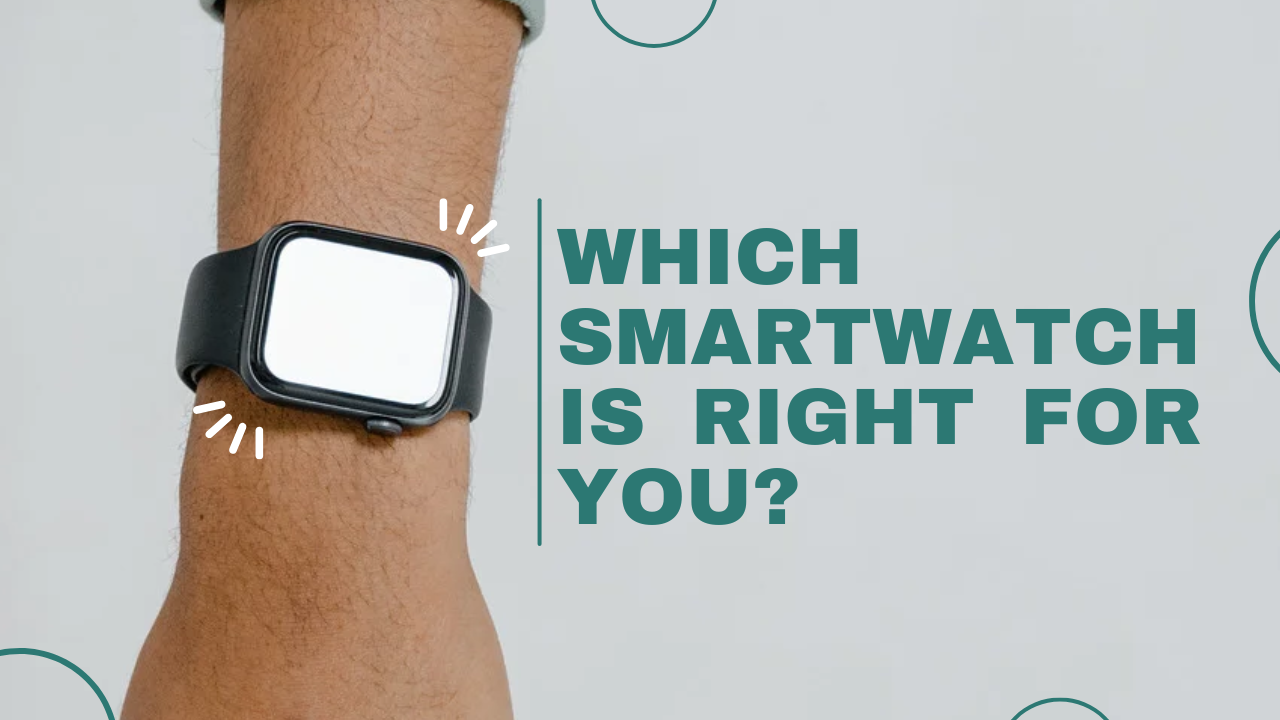You glance at your wrist—not for the time, but to check messages, track your steps, or monitor your heart rate. Smartwatches today do far more than tick—they’ve become lifestyle tools tailored to how we move, work, and stay connected. With so many models on the market, the challenge isn’t finding one—it’s choosing the right one. Some are fitness-focused, others are productivity-driven, and many blend style with function. The best pick isn’t always the most expensive—it’s the one that fits your routine. This article helps you explore features, ecosystems, and designs to find the smartwatch that suits your life best.
Why Smartwatches Are More Than Just Timekeepers
Smartwatches have moved well beyond their early reputation as digital watches with notifications. In 2025, they serve as daily companions—helping users stay healthy, connected, and efficient. From tracking sleep patterns to navigating busy schedules, the modern smartwatch is a wrist-based lifestyle hub.
Want to understand how smartphones still complement smartwatch functionality? Check out our breakdown of what makes a great smartphone camera for everyday users.
Your Health on Your Wrist
One of the biggest shifts in wearable tech is its deep focus on health and wellness. Today’s smartwatches don’t just count steps—they support long-term well-being.
- Heart rate monitoring for exercise and rest
- Sleep tracking that highlights rest quality and recovery
- Stress detection and breathing exercises for real-time support
- Built-in fitness programs that guide workouts and measure progress
These features empower users to take control of their health—anytime, anywhere.

Stay Connected on the Go
Smartwatches now handle communication just as efficiently as smartphones.
- Texts, emails, and app notifications appear right on your wrist
- Call capabilities via built-in mic or Bluetooth connection
- Cellular-enabled models allow you to leave your phone behind without losing touch
For busy days or quick replies, it’s all about staying informed—without reaching for your phone.
Lifestyle and Convenience Features
Beyond health and messages, smartwatches offer powerful tools to simplify everyday tasks.
- Contactless payments via NFC
- Voice assistants for setting reminders or sending texts
- Music controls and calendar syncing to keep life running smoothly
These features turn your wrist into a remote control for your day—stylish, seamless, and always accessible.
Choosing Based on Your Lifestyle Needs
Not all smartwatches serve the same purpose—and they shouldn’t. The right device depends on how you live, move, and manage your day. Whether you’re logging workouts, juggling meetings, or pairing tech with style, there’s a smartwatch that fits your rhythm.
For the Fitness-Focused
If your days revolve around training sessions or staying active, look for a smartwatch designed with performance in mind.
- Built-in GPS for accurate run and route tracking
- Workout-specific modes like HIIT, yoga, or cycling
- Sweat and water resistance for long-term durability
- Recovery insights such as VO₂ max and heart rate variability
These models often offer robust health dashboards and integration with fitness apps.
For Everyday Efficiency
For those who value productivity and quick access to tools, a smartwatch that complements your workflow is essential.
- Reliable notifications for emails, calendar events, and app alerts
- Voice-to-text replies and hands-free reminders
- Battery life that lasts through meetings and beyond
- Seamless syncing with work platforms like Google or Apple Calendar
Think of it as a mini assistant strapped to your wrist.
For Fashion and Flexibility
Some smartwatches don’t just fit your schedule—they fit your style, too.
- Interchangeable straps and customizable watch faces
- Minimalist or glam designs to match outfits or occasions
- Style-driven brands offering tech that doubles as an accessory
These options prove that wearable tech can be as much about personal expression as functionality.
Compatibility and Ecosystem Matters
A smartwatch might look great and offer amazing features—but if it doesn’t sync seamlessly with your other devices, its full potential goes untapped. Compatibility isn’t just about pairing—it’s about performance, integration, and long-term usability within your digital world.
Need help understanding how brand ecosystems affect smartwatch experience? Read our in-depth Apple review to see how integration drives daily usability.
iOS vs Android Users
Not all smartwatches play well across operating systems. Some are optimized for one ecosystem and may limit features when paired outside of it. Here’s a quick breakdown:
| System | Best Match | What Works Best |
|---|---|---|
| WatchOS | iPhone only | Full access to calls, texts, Fitness+, Siri, and iCloud |
| Wear OS | Android (some iOS support) | Google Assistant, Gmail sync, Google Fit, Play Store |
| Proprietary | Varies by brand (e.g. Huawei, Fitbit) | Limited app support, but better battery or price |
Apple Watch, for example, won’t deliver the same experience when paired with Android—and vice versa for certain Wear OS devices with iPhones.
App Ecosystem and Syncing
Beyond core features, consider how well the smartwatch supports your everyday tools and apps.
- Third-party apps: Does it support popular services like Spotify, Strava, or WhatsApp?
- Calendar and reminders: Check for reliable syncing with platforms like Google or Apple Calendar.
- Voice assistants: Siri, Google Assistant, or Alexa should respond quickly and accurately.
The more cohesive the ecosystem, the smoother your daily experience will be. A smartwatch isn’t just another device—it’s part of how you stay organized, connected, and in control.
What to Watch for in 2025 Models
Smartwatches in 2025 are smarter, faster, and more mindful of what users actually need. From enhanced health insights to improved sustainability, the latest models go beyond upgrades—they offer more meaningful everyday value. If you’re considering a new device this year, these are the key trends to keep an eye on.
Curious how smartwatch innovation fits into the broader tech landscape this year? Take a look at who’s really leading in tech innovation for 2025.
Smarter Sensors and AI Integration
Today’s smartwatches are like personal health assistants—with sensors that monitor more than just the basics.
- Blood oxygen (SpO₂) and ECG readings for deeper wellness insights
- Skin temperature tracking to detect illness or cycle changes
- Fall detection and emergency response features
- AI-powered coaching that provides personalized fitness or recovery suggestions
These upgrades make wearables feel proactive, not just reactive.
Battery and Charging Innovations
Battery life continues to be a major selling point—and brands are responding with smarter solutions.
- Fast-charging options that give you hours of use in minutes
- Solar-assisted charging in outdoor or hybrid models
- Extended battery modes to stretch usage during travel or workouts
- Trade-offs: Always-on displays look great but may drain power faster
The best models now offer flexible settings based on how (and how long) you use your watch.
Sustainability and Material Upgrades
As consumer awareness grows, smartwatch makers are becoming more eco-conscious.
- Recycled aluminum, vegan leather straps, and minimal packaging
- Ethical manufacturing initiatives gaining traction
- Lighter, stronger materials for daily comfort and long wear
These improvements show that innovation isn’t just technical—it’s also ethical and environmental.
Price Points and Value
Smartwatches come in all shapes, sizes—and price tags. But paying more doesn’t always mean getting more. The key is to know what matters to you. Whether you’re shopping with a budget in mind or ready to invest in something top-tier, 2025 offers strong options across the spectrum.
Budget-Friendly Picks That Perform
Affordable smartwatches have come a long way. Entry-level models now pack in core features that cover everyday needs without draining your wallet.
Key features to prioritize:
- Reliable notifications and basic health tracking
- Water resistance for workouts and daily wear
- Solid battery life (at least 3–5 days)
- App compatibility with your phone
Some of the best budget models offer streamlined versions of premium devices—minus the extras you may not need.
Premium Features Worth the Splurge
For those wanting a more polished experience, high-end smartwatches justify their cost through design, power, and detail.
What you get at the top:
- Luxury materials like stainless steel or sapphire glass
- Standalone LTE so you can leave your phone behind
- Advanced health tools like ECG, VO₂ max, and skin temperature sensors
- Faster processors and AI-driven performance insights
If you’re looking for longevity, rich features, and seamless performance, these premium picks are built to last—and impress.
Final Questions to Ask Before You Buy
Before adding that smartwatch to your cart, it’s worth pausing to reflect on what really matters to you. With dozens of models boasting flashy specs, the best choice isn’t the one with the most features—it’s the one that fits your daily life. Here are a few smart questions to guide your decision.
Is It Compatible with My Phone and Apps?
Not all smartwatches work the same across devices. Make sure your pick is fully compatible with your operating system (iOS or Android) and supports the apps you actually use—like calendars, fitness trackers, or music streaming platforms. Incomplete pairing can limit core functions and impact long-term satisfaction.
Will I Use These Features Daily?
It’s easy to get caught up in all the extras—ECG readers, voice assistants, or GPS. But think about what you’ll actually use. Daily features like notifications, health tracking, and alarms often matter more than niche tools. Choose a watch that fits your real routine, not your imagined one.
Do I Care More About Looks or Function?
Some smartwatches are built for performance, others for aesthetics—and a few strike a balance. Ask yourself if design or utility takes priority. If both matter, look for models that allow strap changes, customizable faces, or come in stylish materials without sacrificing tech power.
Conclusion: The Smartwatch That Fits Your Life
There’s no one-size-fits-all answer when it comes to smartwatches—but there is one that fits you. With so many styles, features, and price points available, the best choice comes down to your lifestyle and what you value most—health tracking, seamless syncing, battery life, or simply how it looks on your wrist. Thinking through compatibility, daily use, and design helps you invest wisely in a device you’ll actually enjoy wearing. Take your time, weigh the essentials, and trust that the right smartwatch isn’t just a gadget—it’s a tool that supports how you move through your day.




